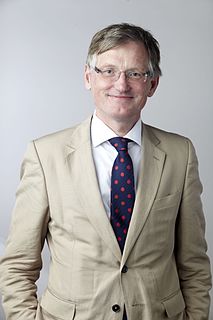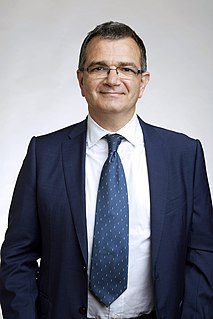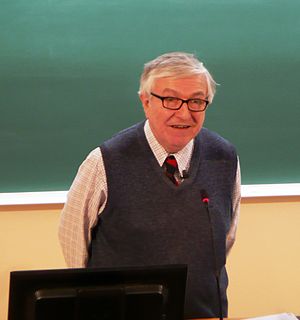
John Frederick William Birney is joint director with Rolf Apweiler of the European Bioinformatics Institute (EBI), part of the European Molecular Biology Laboratory (EMBL) in Hinxton, Cambridgeshire. He also serves as non-executive director of Genomics England, chair of the Global Alliance for Genomics and Health (GA4GH) and honorary professor of Bioinformatics at the University of Cambridge. Birney has made significant contributions to genomics. Through his development of innovative bioinformatics and computational biology tools, researchers around the world are able to predict and annotate regions of interest in DNA with speed and confidence. He was previously an associate faculty member at the Wellcome Trust Sanger Institute..
Frank Raymond Allchin FBA with his wife, Bridget Allchin FSA (1927–2017), represent one of the most influential British partnerships in the post-Independence study of South Asian archaeology. Producing a large body of scholarship ranging from archaeological excavations, ethnoarchaeology as well as epigraphy and linguistics, the Allchins made their work and that of others highly accessible through a series of sole, joint and edited publications. Seminal works include The Birth of Indian Civilisation (1968), which was later superseded only by their books The Rise of Indian Civilisation in India and Pakistan (1982) and The Archaeology of Early Historic South Asia (1995).
Sir David Forbes Hendry, FBA CStat is a British econometrician, currently a professor of economics and from 2001–2007 was head of the Economics Department at the University of Oxford. He is also a professorial fellow at Nuffield College, Oxford.

Sir Stephen Patrick O'Rahilly is an Irish-British physician and scientist known for his research into the molecular pathogenesis of human obesity, insulin resistance and related metabolic and endocrine disorders.

Julian Parkhill FRS is a Professor in the Department of Veterinary Medicine at the University of Cambridge. He was previously head of Pathogen Genomics at the Wellcome Trust Sanger Institute.

Patrik Rorsman FRS FMedSci is Professor of Diabetic Medicine at the Oxford Centre for Diabetes, Endocrinology and Metabolism (OCDEM), in the Radcliffe Department of Medicine at the University of Oxford and a fellow of Harris Manchester College, Oxford.
The Burkitt Medal is awarded annually by the British Academy "in recognition of special service to Biblical Studies". Awards alternate between Hebrew Bible studies and New Testament studies. It was established in 1923 and has been awarded to many notable theologians. It is named in honour of Francis Crawford Burkitt.

Michael Edward "Mike" Goddard is a professorial fellow in animal genetics at the University of Melbourne, Australia.
The University of Oxford introduced Titles of Distinction for senior academics in the 1990s. These are not established chairs, which are posts funded by endowment for academics with a distinguished career in British and European universities. However, since there was a limited number of established chairs in these universities and an abundance of distinguished academics it was decided to introduce these Titles of Distinction. Professor and reader were conferred annually, with Professor being the most senior.

Vincenzo Cerundolo is the Director of the Medical Research Council (MRC) Human Immunology Unit at the University of Oxford, at the John Radcliffe Hospital and a Professor of Immunology at the University of Oxford. He is also a Supernumerary Fellow at Merton College, Oxford. Enzo is known for his discoveries in processing and presentation of cancer and viral peptides to T cells and lipids to invariant NKT cells.










